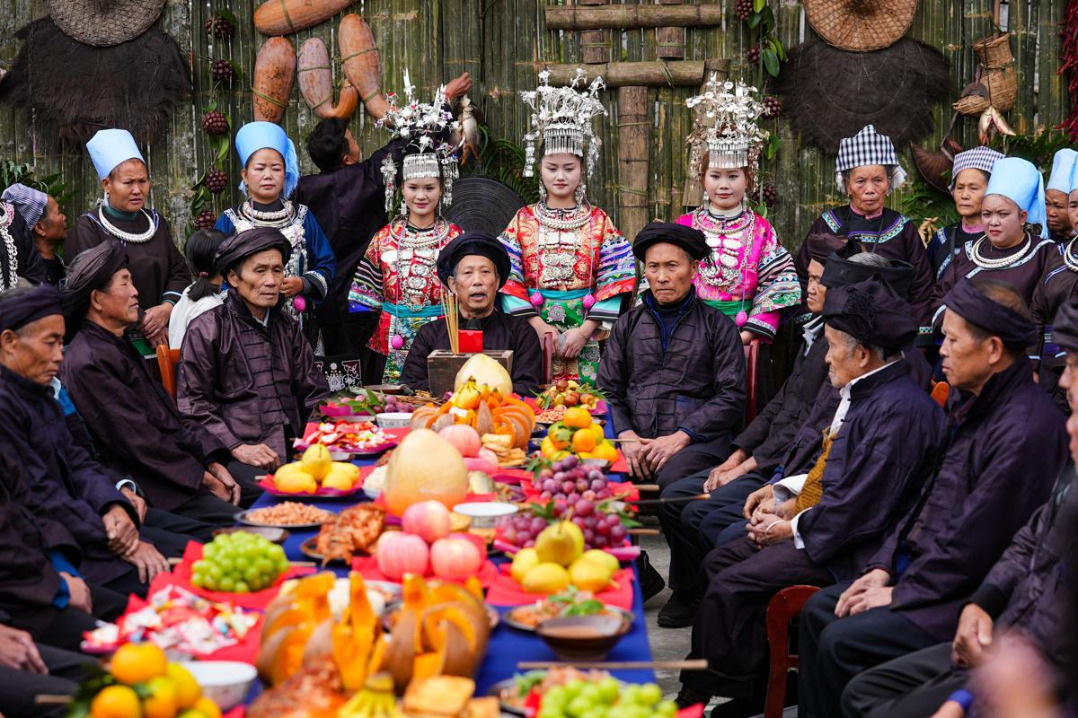Talks give hope to US industries, soybean farmers

US industries and soybean farmers expressed optimism following Thursday's meeting between the Chinese and US presidents, hoping that the talks will lead to deeper and more sustainable trade relations.
Chinese President Xi Jinping and US President Donald Trump held their first face-to-face meeting on Thursday morning in Busan, South Korea, since Trump assumed office in January for his second term.
Trump told reporters aboard Air Force One that the US would lower "fentanyl tariffs" on China from 20 percent to 10 percent.
The US will also suspend 24 percent reciprocal tariffs on Chinese goods — including those from the Hong Kong and Macao special administrative regions — for one year, while China will adjust its countermeasures accordingly. Both sides agreed to continue certain tariff exclusions, according to a statement from China's Ministry of Commerce released after the leaders' meeting.
The two sides also reached a consensus on anti-drug cooperation, expanded agricultural trade and the handling of individual enterprise cases, the ministry said in unveiling the outcomes of the economic and trade talks the US and Chinese teams held in Kuala Lumpur, Malaysia, last weekend.
"I guess, on the scale from zero to 10, with 10 being the best, I would say the meeting was a 12," Trump told reporters after the meeting on Thursday.
Following the Busan talks, the US-China Business Council expressed optimism that the two leaders' agreement lays the groundwork for a deeper and more sustainable trade pact.
Sean Stein, president of the council, said the outcomes of the meeting were "very encouraging", noting that tariff reductions and anti-drug cooperation "have paved the way for a reopening of China's market for US agriculture and energy and a wider, mutually beneficial trade agreement".
"Washington's decision to suspend the implementation of the BIS 50 percent rule and Beijing's decision to pause its Oct 9 export controls are especially welcome news. We applaud both presidents for these important breakthroughs," Stein said.
The "BIS 50 percent rule", officially the "Affiliates Rule", refers to a rule the US Department of Commerce's Bureau of Industry and Security announced on Sept 29 that expands its "entity-list" export restrictions to any entity that is at least 50 percent owned by one or more entities on the list.
The US will suspend for one year the implementation of that rule. China will put a one-year pause on "relevant export control measures" announced on Oct 9 and will study and refine specific plans, according to China's Ministry of Commerce.
The Oct 9 export control measures were related to superhard materials, rare earth equipment and materials, and batteries.
The American Soybean Association, or ASA, said that after months of stalled purchases and uncertainty, the announcement regarding US-China agricultural trade is a very positive development for soybean farmers who rely on open markets.
"This is a meaningful step forward to reestablishing a stable, long-term trading relationship that delivers results for farm families and future generations," said Caleb Ragland, ASA president and a soybean farmer from Kentucky.
Richard Haass, president emeritus of the Council on Foreign Relations, noted that the meeting yielded some gains for both countries.
"That the US-China relationship emerged more stable (however temporary) drew a sigh of relief from many in the region, as none want to be forced to choose between the two great powers," Haass said in an analysis posted on Thursday.
huanxinzhao@chinadailyusa.com
- Enhanced trust can spur ties, defense chief tells US
- Supreme beauty that creates connections, bridges culture
- Shenzhou XXI crew begins space mission
- Shenzhou XXI astronauts enter space station
- China's Shenzhou XXI crewed spaceship docks with space station combination
- Annual report on rule of law in China released




































